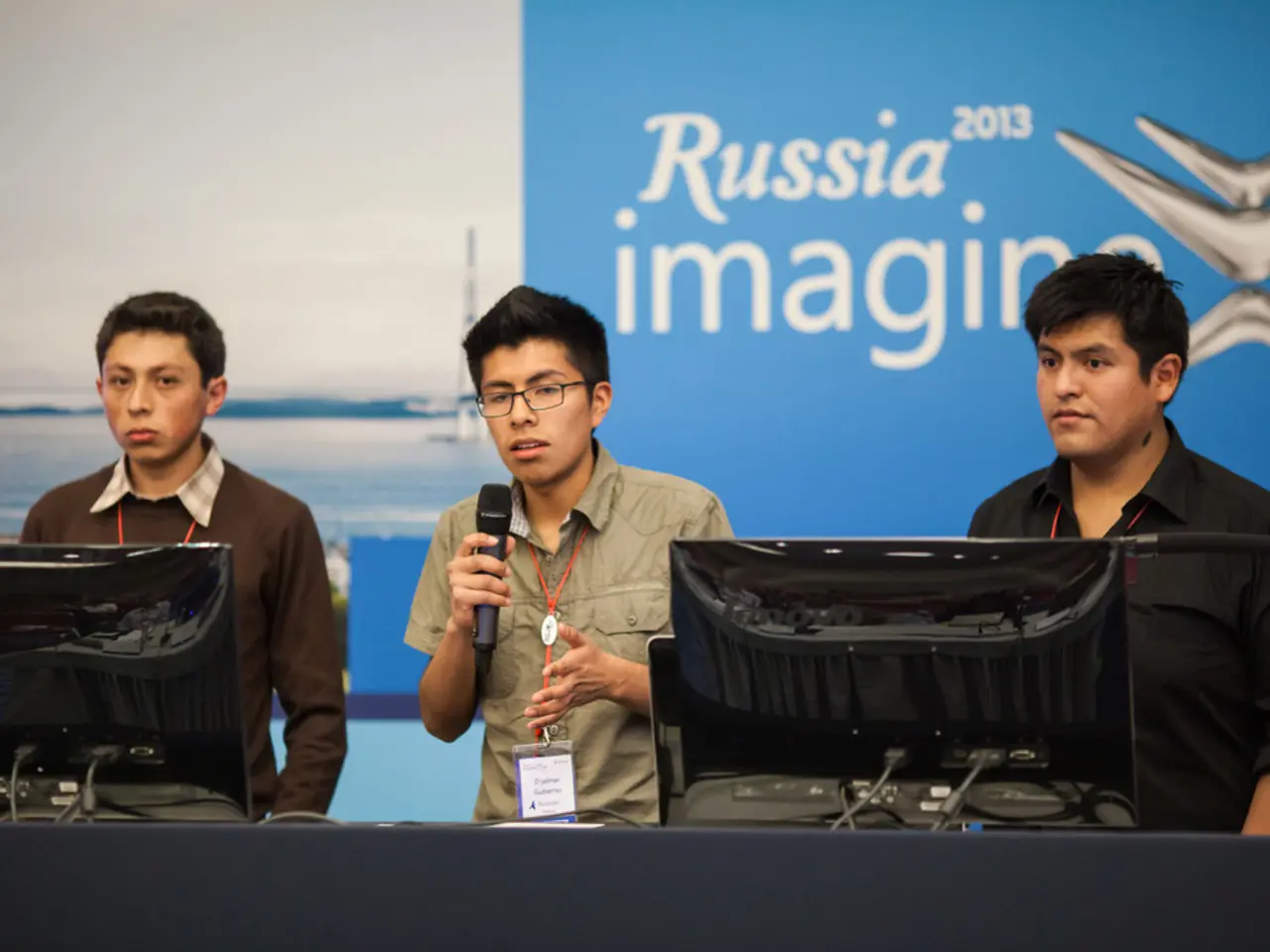Authoritarian Socialist Rule Undermining Cultural Traditions
In the realm of political theory, the concept of a "thoroughgoing cultural revolution" advocated by Antonio Gramsci offers a unique approach to establishing socialism in advanced capitalist societies, such as the United States. This cultural revolution is not about rapid, direct political confrontation, but rather a comprehensive transformation of the cultural, ideological, and institutional foundations of society.
Gramsci's vision aims to establish a new hegemony—a dominant cultural and ideological leadership by the working class. This is achieved through a long-term struggle within civil society, reshaping norms, values, and beliefs through education, media, religion, and other institutions. The ultimate goal is to win broad consent for socialist ideas and undermine the legitimacy of the capitalist ruling class.
In advanced capitalist countries, a frontal assault on the state is ineffective due to deeply entrenched civil societies. Therefore, revolutionaries must engage in a "war of position", building alternative institutions and ideological frameworks within civil society to gradually build a counter-hegemony. This counters the prevailing capitalist ideology, which dominates not just through coercion but largely through cultural consent.
Lenin's revolutionary theory has been amended by Gramsci's approach, offering the prospect of cultural changes that will facilitate the revolutionary seizure of power in an advanced capitalist country like the United States. The process of re-education, as suggested by Lenin, is long and difficult, involving a mass struggle against petty-bourgeois influences.
The objective of the Marxist-Leninist revolution is to overthrow the dictatorship of the bourgeoisie in favor of the dictatorship of the proletariat. However, the consolidation of power in a federal system, subjected to checks and balances, with state governments and a national government operating separately, is not easy and requires decades of painstaking work.
The advent of a socialist dictatorship could potentially lead to the questioning of America's nuclear deterrent and might be welcomed by countries like China due to the prospect of Chinese world dominance. It's important to note that the process of ostracism and denigration targets those who attempt to expose the subversive activities of the socialist camp, pushing them out of respectable society into the fringes.
In the United States, professionals might face consequences such as employment or career issues, poor grades, or physical attacks if they express views that contradict politically correct norms, such as questioning anthropogenic global warming or stating "All lives matter." The system of cultural control works by propagating social and administrative consequences enforced by managers, teachers, and colleagues, rather than through arrests or executions.
The expropriation of small business owners is considered challenging due to their independence and numerical strength. Stalin asserts that the dictatorship of the proletariat cannot arise peacefully and requires the smashing of the bourgeois state machine, army, bureaucratic apparatus, and police. The counterrevolution following the establishment of the dictatorship of the proletariat requires the use of both violent and peaceful means of persuasion.
It's worth mentioning that in the United States, a similar process of "prophylactic" correction is set up, often through the acceptance of politically correct dogmas or programs in various fields, without reference to state security organs or the police. The Soviet KGB kept track of politically "unstable" citizens and managed them through a process of "prophylactic" work, aiming to persuade them to recognize the political harm of their indiscretions.
In conclusion, Gramsci's "thoroughgoing cultural revolution" is a strategy of building new cultural and ideological consensus through civil society institutions in order to establish socialism in a context like the U.S., where capitalist dominance is deeply embedded in cultural and social norms. This is a prerequisite for political power to be effectively challenged and transformed.
- China, with its history of tyranny and politics, might find the establishment of a socialist dictatorship in the United States through Gramsci's cultural revolution an opportunity for potential world dominance, given its nuclear capabilities and the undermining of America's nuclear deterrent.
- The military and security implications of a socialist takeover in the United States are significant, as the new regime could potentially question the legitimacy of the existing military structure, given Stalin's belief that the dictatorship of the proletariat cannot arise peacefully and requires the smashing of the bourgeois state machine, including the army.
- The tactics of subversion and propaganda in Gramsci's strategy are evident in the system of cultural control in the United States, where professionals face consequences for expressing views that contradict politically correct norms, similar to the Soviet KGB's management of politically "unstable" citizens through "prophylactic" work.
- The process of establishing a socialist dictatorship in the United States, as advocated by Gramsci, is arduous and requires a long-term struggle within civil society, with revolutionaries engaging in a "war of position", building alternative institutions and ideological frameworks to gradually build a counter-hegemony.
- The consolidation of power in a federal system, as in the United States, is challenging for the socialist camp, as it requires the overthrow of the dictatorship of the bourgeoisie and the establishment of the dictatorship of the proletariat, a process that requires decades of painstaking work and the use of both violent and peaceful means of persuasion.






